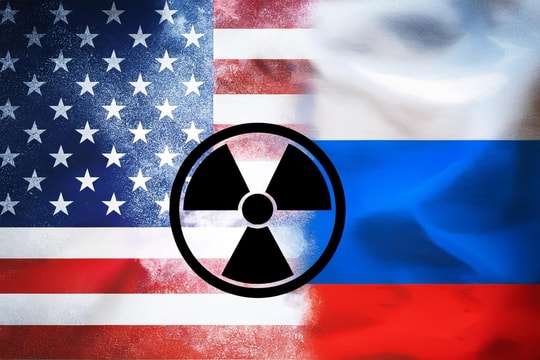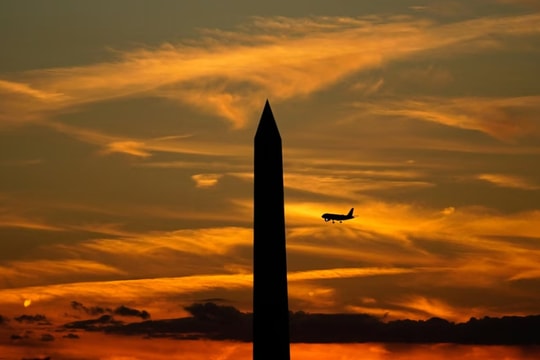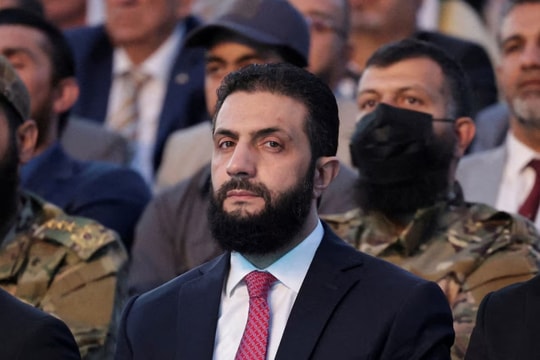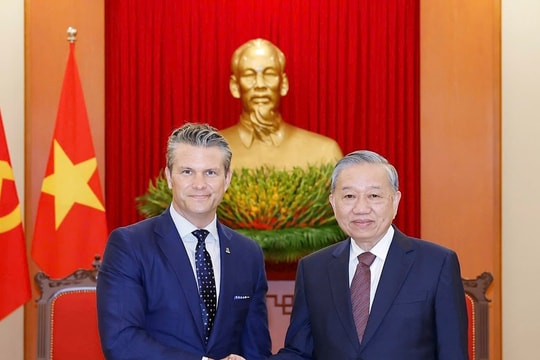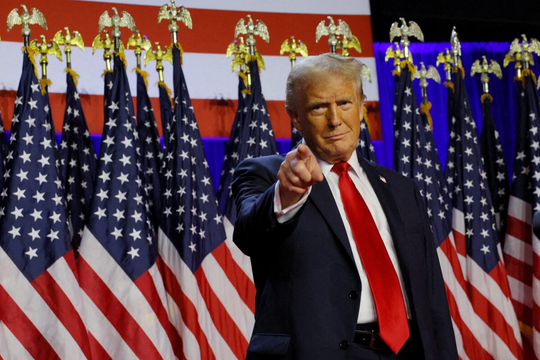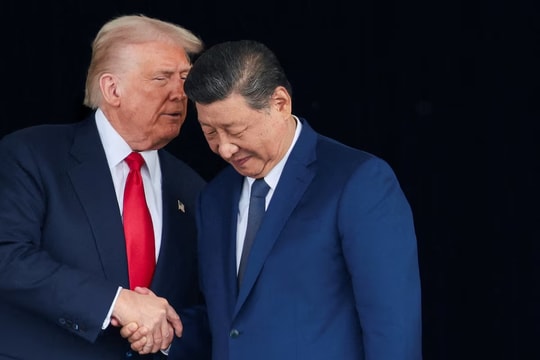Iran's President and the problem with the US
(Baonghean.vn) - The second term of Iranian President Hassan Rouhani has started with more difficulties than the first four years in power. Pressure is increasing from the US with the latest sanctions. Meanwhile, the domestic opposition is also looking for ways to reverse his achievements.
The Punishment Returns
During his inauguration ceremony before the National Assembly on August 5, Iranian President Hassan Rohani warned the US that Tehran would retaliate "appropriately" for any violation of the nuclear deal between the country and the P5+1 group.
Ahead of his inauguration, Iranian President Rouhani met with the European Union (EU) High Representative for Foreign Affairs and Security Policy, Federica Mogherini, calling for further efforts to maintain the 2015 nuclear deal between Iran and world powers following new US sanctions against Tehran.
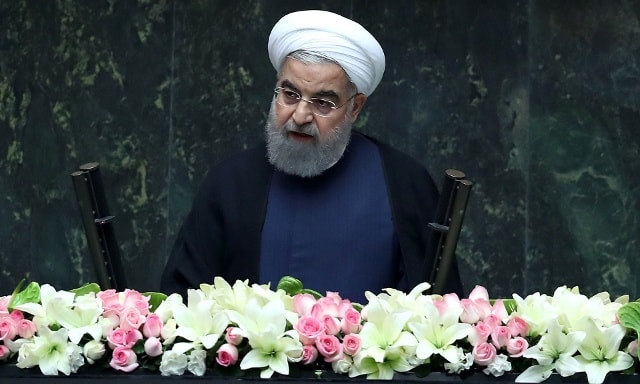 |
| Iranian President Hassan Rouhani is inaugurated for a second term following a historic nuclear deal with the P5+1 group. Photo: The Guardian |
In his inaugural speech, Mr. Rouhani also affirmed his tough stance towards the US. "The Islamic Republic of Iran will not be the first to violate the nuclear deal, but it will not be silent if the US does not respect its commitments.
Iran will respond to sanctions with appropriate and proportionate actions," Iran said. The new US sanctions, which specifically target Tehran's ballistic program and the Revolutionary Guard, violate the nuclear deal because they prevent Tehran from normalizing economic relations with the rest of the world and negatively affect foreign investment.
The inauguration of the Iranian president took place at the same time that US President Donald Trump signed into law a bill imposing sanctions on Iran for its ballistic missile development program, a blow to Tehran's efforts to integrate after years of sanctions over its nuclear program.
The nuclear deal between Iran and world powers including Britain, France, the United States, Russia, China and Germany signed in July 2015 has allowed the return of major international companies to the Iranian market, especially recent deals with French oil company Total and Chinese CNPC in the gas sector.
However, US sanctions and President Donald Trump's growing hostility complicate President Rouhani's task of attracting billions of dollars in foreign investment to boost the economy and reduce unemployment, which currently stands at 12.7% in Iran.
The fluctuations remain
Hassan Rouhani's first term as President was considered a success, with Tehran reaching an agreement with major powers including the UK, France, the US, Russia, China and Germany to curtail its controversial nuclear program. It was not just a nuclear agreement. It was also a political solution to Iran's relations with the West, as well as for the entire Middle East region. Because of this outstanding and important foreign and security achievement, Mr. Rouhani deserved to receive voters' votes for a second term.
However, this agreement has been criticized and pressured by the new US administration to scrap it. Its fate is seriously threatened by the political atmosphere and situation in the US. Therefore, maintaining this agreement has become one of the most difficult challenges and missions for Mr. Rouhani in his second term in office.
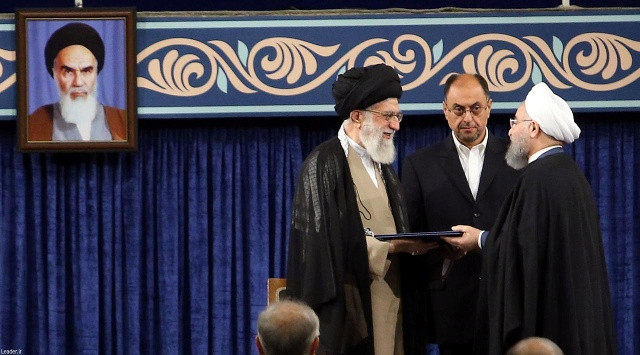 |
| Mr. Rouhani received the mandate from Supreme Leader Ayatollah Ali Khamenei at the inauguration ceremony on August 3. Photo: Reuters |
Despite the US - an important partner in the nuclear deal - opposing it, Iran has received important support from Russia, China, the UK, France, Germany and the EU as a whole. Up to now, the administration of President Donald Trump, although reluctant to confirm Iran's strict compliance, is still secretly looking for an excuse to withdraw from the deal, pushing the relationship with Iran back into tension, even on the nuclear issue.
That is part of the reason why US President Donald Trump has created a new coalition in the Arab and Muslim world to fight terrorism, which is an important part of preventing Iran's growing influence in the Middle East. It is not surprising that Washington has stirred up the Iranian nuclear issue to have a pretext to antagonize and antagonize the country, which is therefore consistent with that policy intention.
From within Iran, the US’s hostile attitude and its intention to create pretexts and provoke Tehran will also make things more difficult for President Rouhani, as the hardliners and conservatives in Iran, who have always opposed the agreement, will have an excuse to overturn the whole thing. The combined impact of these trends will destroy all the positive effects that the agreement has brought.
Risk of confrontation again
President Donald Trump and his national security team have not given up on the idea of scrapping the nuclear deal with Iran and imposing more sanctions on the Islamic Republic. But it should be noted that this is a dangerous move for the United States in the context of the situation in the Middle East region that still has many problems and conflicts.
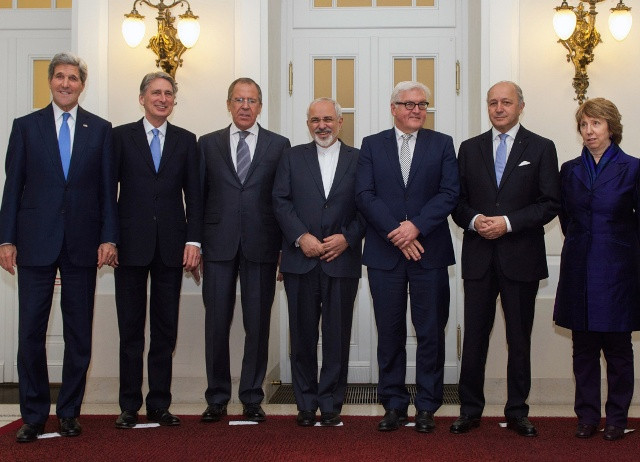 |
| The historic nuclear deal with the P5+1 group is becoming the target of attack by Iranian President Rouhani. Photo: Iran Daily |
US allies Saudi Arabia, Egypt, Bahrain and the United Arab Emirates (UAE) are at loggerheads with another Washington ally, Qatar, over concerns about Doha’s ties to Tehran. The US understands that if the crisis is not resolved soon, it will push Qatar, which hosts a US military base in the region, closer to Iran.
The problem is that the Donald Trump administration has not been able to find a way out to help its Arab allies “cool down”. In addition, the US and Iran are also on opposite sides of the Syrian front, where the US supports the rebels and Iran supports President Bashar al-Assad. Another attempt at aggression will push this confrontation to explode in unpredictable directions.
Mr. John Glaser - Deputy Director of the foreign policy research program of the Cato Institute in Washington, USA said that if the nuclear agreement is canceled, Iran will abandon all responsibility to limit their nuclear program and the US will immediately return to "war" with this Islamic Republic./.
Phan Tung
| RELATED NEWS |
|---|


